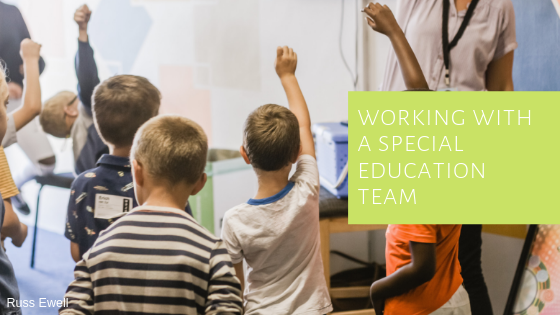Special Education Teams are employed by schools to handle a wide range of learning disabilities, disorders, and to work closely with kids who need a little extra support in the behavioral side of structuring education. While each team is generally knowledgeable on a variety of needs, most teams have a core member or two who specialize in your child’s specific area of need. If you find yourself in a smaller school district, finding someone who is specifically qualified to cover your child’s personal needs can be a daunting task. However, the reward that your child will experience from working with a special education professional is worth it.
The first thing you will encounter when working with a Special Education Team— big or small —is the assessment.
Assessments
Your child will be taken through a variety of assessments. These are used to determine your child’s current ability to handle social situations, communication, and other tasks like visual tracking and memory. While assessments can take a variety of forms, you can work with your special education team to determine what assessments are necessary by bringing in any paperwork that you currently have. Even bringing in past test results can help the team determine what gaps may need to be filled in your child’s educational status.
Mile markers
Whether you are shopping for a school district or you are working within a specific system, developing a solution-based relationship with your caseworker is absolutely essential. When you look at an obstacle, the two of you need to have an honest discussion about what is standing in your way, what has been tried, what has worked, what has failed, and the options you have left at your disposal.
Going through this process may seem tedious at the time, however, by breaking down your child’s behaviors, current milestones, and future goals, you will be able to create an actionable plan to discover the way to your child’s success.
Ultimately, assessments are only the beginning of working with a Special Education Team. You need to understand your child’s current abilities, but in no way does the assessment foretell your child’s entire future. By cultivating an honest and solution-based relationship with your caseworker, the two of you can work together to set your child up for success—no matter his or her needs.
